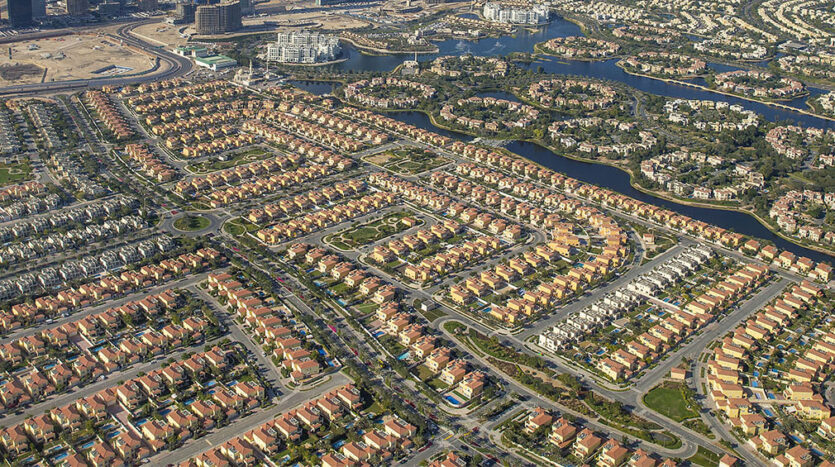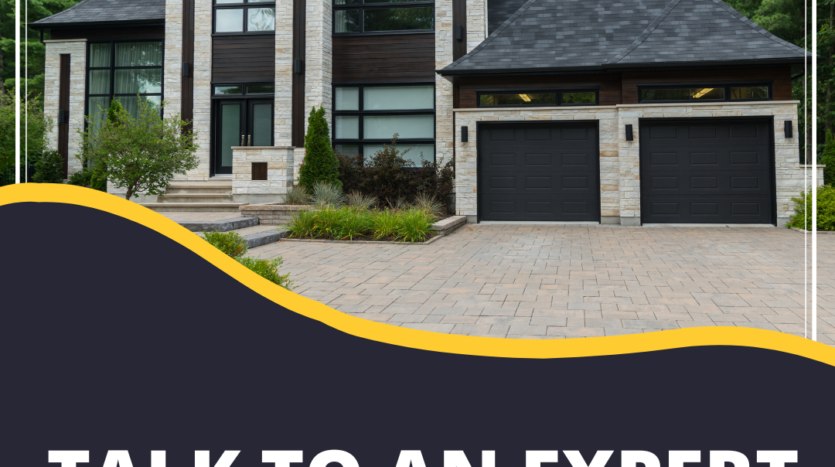How Much Does It Cost to Buy a House in Dubai?
Dubai, a vibrant city in the United Arab Emirates, is a hotspot for expatriates and investors seeking lucrative opportunities in the real estate market. With its impressive skyline, luxurious properties, and tax-free environment, Dubai attracts people from all over the world looking to settle down or make smart property investments. If you’re considering buying a house in Dubai, it’s essential to understand the market dynamics and associated costs to make an informed decision. Buy a House in Dubai
Understanding the Dubai Real Estate Market
Dubai’s real estate market has experienced significant growth over the years, fueled by a booming economy and a favorable business environment. The market is known for its occasional fluctuations, influenced by both global and local factors. Understanding the current trends and the factors affecting property prices can help potential buyers make strategic choices.
Current Trends
In recent years, Dubai has seen a shift towards affordable housing options and sustainable developments. The government’s focus on creating a balanced and diversified real estate market has led to the development of more budget-friendly properties, making homeownership more accessible for a broader segment of the population.
Factors Affecting Property Prices
Several factors impact property prices in Dubai. Some of the key determinants include:
– Location:Properties in prime areas, such as Downtown Dubai or Dubai Marina, often come with a premium price tag due to their proximity to amenities and attractions.
Supply and Demand
An oversupply of properties in a particular area can lead to decreased prices, while high demand can drive prices up.
Economic Conditions
The overall economic health of the city and the UAE can influence property prices.
Infrastructure Development
Areas with upcoming infrastructure projects and improvements tend to witness an increase in property prices.
Types of Properties in Dubai
Dubai offers a diverse range of properties to cater to different preferences and lifestyles. The most common types of residential properties are apartments, villas, and townhouses.
Apartments
Apartments are the most prevalent type of residential property in Dubai, ranging from studio apartments to luxurious penthouses. They are usually located in high-rise buildings and offer various amenities such as gyms, swimming pools, and security services.
Villas
Villas in Dubai provide more space and privacy, making them ideal for families or those who prefer a more secluded lifestyle. They often come with private gardens and sometimes have access to communal facilities like parks and sports amenities.
Townhouses
Townhouses offer a middle ground between apartments and villas, providing a balance of space and convenience. They are often part of gated communities and offer shared facilities like swimming pools and playgrounds.
Off-Plan Properties
Dubai’s real estate market is also known for its off-plan properties, which are developments that are still under construction or in the planning phase. Buyers can purchase these properties before completion, often at attractive prices, and enjoy potential capital appreciation as the project nears completion.
Luxury and Branded Residences
Dubai is renowned for its opulent lifestyle, and the city boasts several luxury and branded residences. These properties are designed by internationally acclaimed architects and come with top-notch amenities and personalized services. Examples include the Armani Residences and Bulgari Residences, where residents experience the epitome of luxury living.
Popular Residential Areas in Dubai
Dubai boasts several sought-after residential areas, each with its unique charm and offerings. Below is a list of some of the popular area that poeple often love to property in:
Downtown Dubai
Known for its iconic landmarks like the Burj Khalifa and Dubai Mall, Downtown Dubai is a bustling neighborhood with a mix of residential and commercial spaces. It offers a luxurious urban lifestyle with access to high-end shopping, dining, and entertainment options.
Dubai Marina
Situated along the waterfront, Dubai Marina is a trendy area known for its stunning skyscrapers, waterfront promenades, and a vibrant nightlife scene. It is a favorite among young professionals and expatriates.
Palm Jumeirah
Shaped like a palm tree, Palm Jumeirah is a man-made island known for its opulent villas and beachfront living. It offers a luxurious and exclusive lifestyle.
Arabian Ranches
For those seeking a tranquil suburban lifestyle, Arabian Ranches offers spacious villas, lush green spaces, and community facilities like golf courses and schools.
What financial commitment does purchasing a home in Dubai entail?
In the vibrant city of Dubai, the price tags attached to homes are as diverse as the city’s eclectic character. The location, type, and size of the property each weave a distinct tapestry of costs, offering a plethora of options to match every taste and aspiration. As of [current year], here’s an overview of the average property prices:
How Much Does It Cost to Buy a House in Dubai with an estimate.
Apartment Prices
– Studio Apartments: AED 500,000
– 1-Bedroom Apartments: AED 1140,000
– 2-Bedroom Apartments: AED 190,000
– 3-Bedroom Apartments: AED 3000,000
Villa Prices
– 3-Bedroom Villas: AED 3200,0000
– 4-Bedroom Villas: AED 630,0000
– 5-Bedroom Villas: AED 7300,000
Kindly note that the above price are just an estimate because price are subjected to change depending on the location of the property. kindly talk to a real agent expert for more details regarding price and best investment option.
Understanding How Much Does It Cost to Buy a House in Dubai
Buying a house in Dubai involves various costs beyond the actual purchase price. Acquiring a comprehensive grasp of these expenses proves indispensable when it comes to crafting a well-informed financial strategy
1. Property Purchase Price
The property’s purchase price constitutes the most substantial expense. As mentioned earlier, factors like location, property type, and market demand influence the price. It’s essential to conduct thorough research and enlist the help of a reputable real estate agent to find a property that aligns with your budget and preferences.
2. Registration Fees and Transfer Charges
When purchasing a property in Dubai, you’ll need to pay registration fees and transfer charges to formalize the transaction. These fees are typically a percentage of the property’s purchase price and are paid to the Dubai Land Department.
3. Mortgage Costs
If you’re considering financing your property purchase through a mortgage, there will be associated costs, including:
– Mortgage Processing Fees: Charged by the lender for processing your mortgage application.
– Valuation Fees:The property will need to be appraised by a registered valuer to determine its value.
– Mortgage Registration Charges:** Paid to the Dubai Land Department to register the mortgage.
4. Maintenance Fees and Service Charges
Living in a community or building often comes with maintenance fees and service charges, especially in the case of apartments and villas within gated communities. These fees cover the maintenance and upkeep of common areas, facilities, and utilities.
5. Real Estate Agent’s Commission
If you decide to engage a real estate agent to assist with the property search and purchase process, their commission will be a percentage of the property’s sale price. In Dubai, the standard commission rate is typically 2% of the property value.
6. NOC Fee (No Objection Certificate)
Suppose you are buying a property in a gated community or a project under a homeowners’ association. In that case, you might need a No Objection Certificate (NOC) from the developer or the community management to complete the property transfer. This NOC might involve additional fees.
7. Home Insurance
While not mandatory, it’s wise to consider home insurance to protect your property and belongings against unforeseen events like fires, floods, or theft.
Tips for Buying a House in Dubai
Here are some essential tips to consider when buying a house in Dubai:
Research and Due Diligence
Do thorough research on the property market, specific areas, and developers before making any decisions.
Working with a Real Estate Agent
Consider working with a reputable real estate agent who has in-depth knowledge of the market.
Negotiation Strategies
Negotiate the price with the seller or developer to get the best deal possible.
Renting vs. Buying in Dubai
Deciding between renting and buying depends on individual circumstances and financial goals.
Pros and Cons
Renting allows flexibility, while buying offers long-term investment potential.
Long-term Investment Considerations
Buying a property can be a lucrative long-term investment, given Dubai’s growing real estate market.
Conclusion
Buying a house in Dubai can be a rewarding and exciting endeavor. By understanding the current real estate market, property types, associated costs, and financing options, you can make a well-informed decision that aligns with your needs and financial capabilities. Whether you’re looking for a luxurious apartment in the heart of the city or a spacious villa on a serene island, Dubai has something to offer for every taste and lifestyle.
FAQ ABOUT How Much Does It Cost to Buy a House in Dubai
1. Can foreigners buy property in Dubai?
Yes, foreigners can buy property in designated areas of Dubai under specific regulations.
2. Are there any restrictions on property ownership?
Yes, there are restrictions on owning certain types of properties in specific areas, primarily reserved for UAE nationals.
3. What are the taxes associated with buying a house in Dubai?
Dubai does not levy property taxes on residential properties, making it an attractive investment destination.
4. Is it better to buy property off-plan or ready-to-move-in?
Each option carries its own set of benefits and potential pitfalls. Off-plan properties may offer better prices, while ready-to-move-in properties provide immediate occupancy.
5. How do I choose the right residential area in Dubai?
Consider factors such as budget, proximity to essential amenities, lifestyle preferences, and future growth prospects when selecting a residential area.







